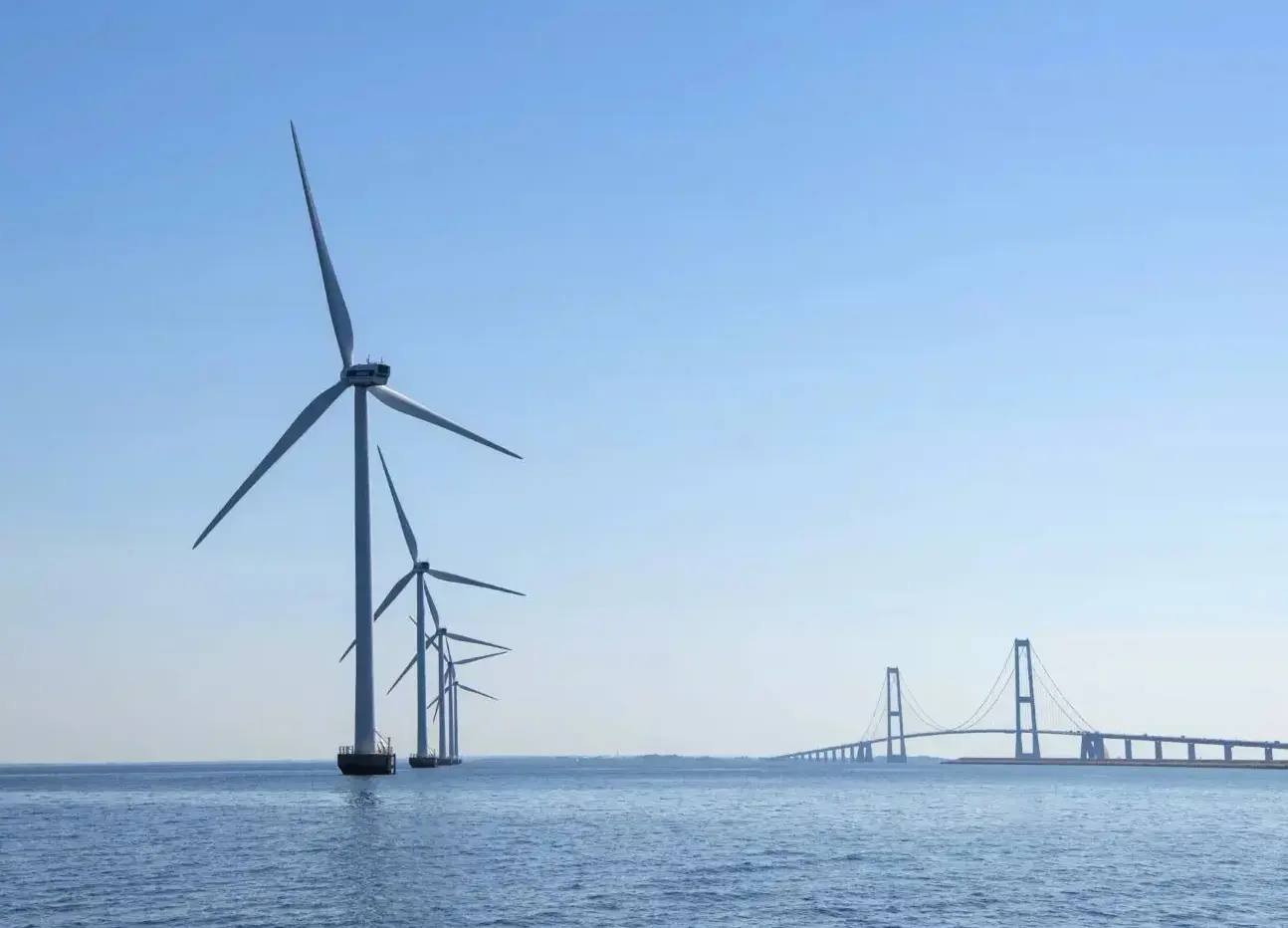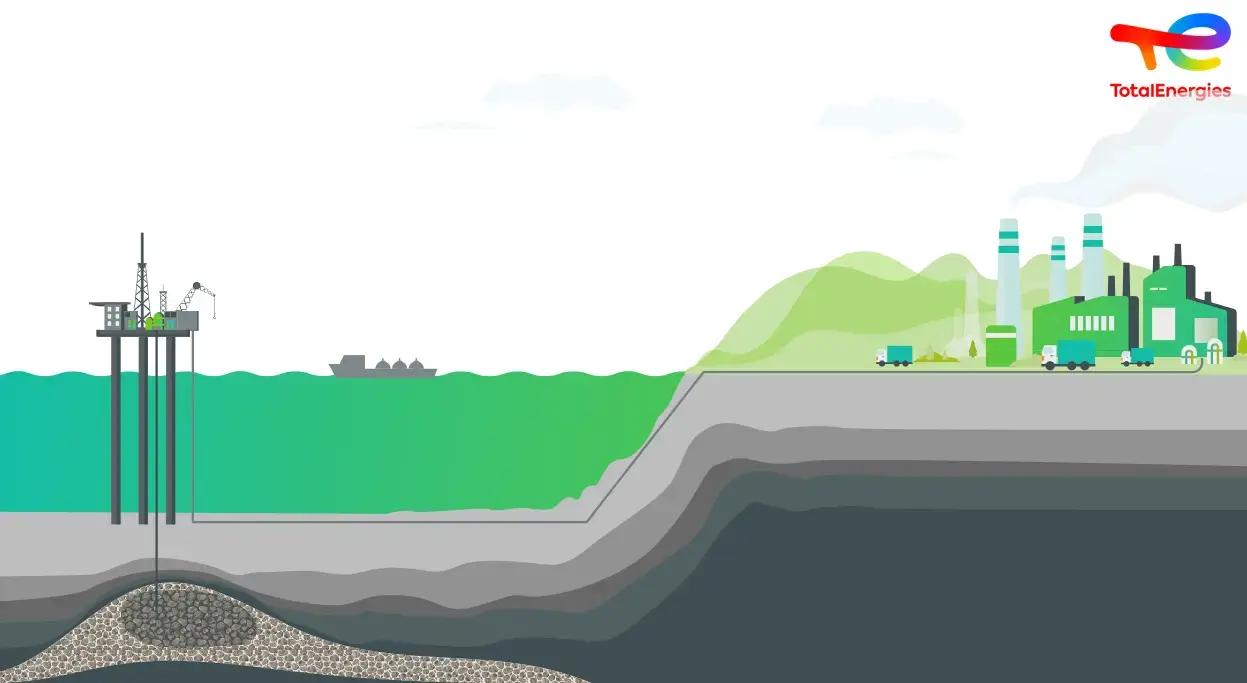
Oil and gas
Contributing to Danish and European energy security and independence
TotalEnergies has been a key player in the Danish North Sea for over 50 years, operating more than 80% of Denmark’s oil and 90% of its gas on behalf of the Danish Underground Consortium (DUC) – a joint venture between TotalEnergies (43.2%), BlueNord (36.8%), and Nordsøfonden (20%).
Denmark's oil production
Denmark's gas production
Oil was first discovered in the Danish sector of the North Sea in 1967, with commercial production from the Dan field commencing in 1972. In 2018, TotalEnergies acquired Maersk Oil and took over its oil and gas assets and operatorship of the DUC.
As a responsible operator, TotalEnergies oversees 15 producing fields structured around the four operational hubs Tyra, Dan, Halfdan and Gorm.
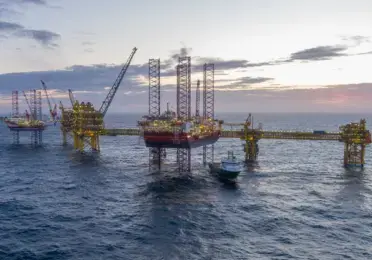
The Tyra Hub
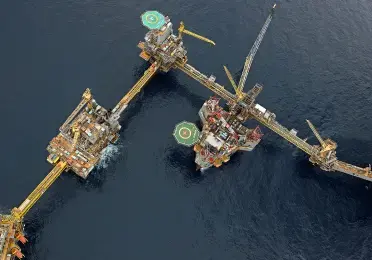
The Dan Hub
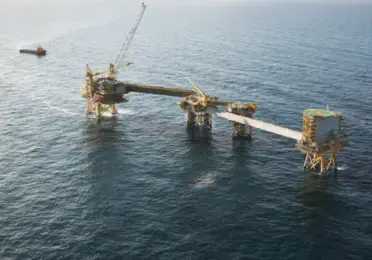
The Halfdan Hub
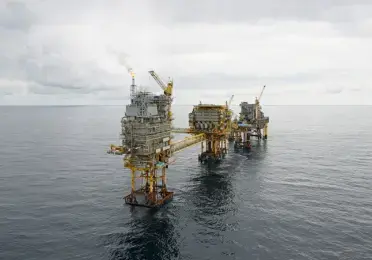
The Gorm Hub
The DUC’s production facilities are connected by around 800 kilometers of subsea pipelines, with export lines to shore in Denmark and the Netherlands. Oil is transported to Fredericia (DK), and gas is sent to Nybro (DK) and Den Helder (NL).
In 2023, the DUC produced 18,8 million barrels of oil and had a sales gas production of 0,88 billion m³.
Denmark is a leader in green energy development and implementation, yet nearly 50% of the country’s energy consumption still relies on oil and gas, partly sourced from the North Sea. As the largest operator in the Danish North Sea and a long-term partner for Denmark, TotalEnergies plays a crucial role in ensuring energy security and independence.
Managing Director, TotalEnergies EP Denmark

Energy security and independence
As the operator of the vast majority of Danish oil and gas, TotalEnergies ensures a stable and secure energy supply to Denmark and Europe, contributing to our energy security and independence.
Since Russia’s invasion of Ukraine in February 2022, the geopolitical landscape has shifted significantly. Energy policy has become closely tied to security policy. The oil and gas resources in the Danish North Sea are invaluable, both in meeting Denmark’s energy needs and supporting neighboring European countries.
The redeveloped Tyra hub, located 225 kilometers west of Esbjerg in the North Sea, is expected to deliver 2.8 billion cubic meters of gas annually upon reaching full production. This will allow Denmark to achieve energy self-sufficiency and become a net exporter of natural gas.
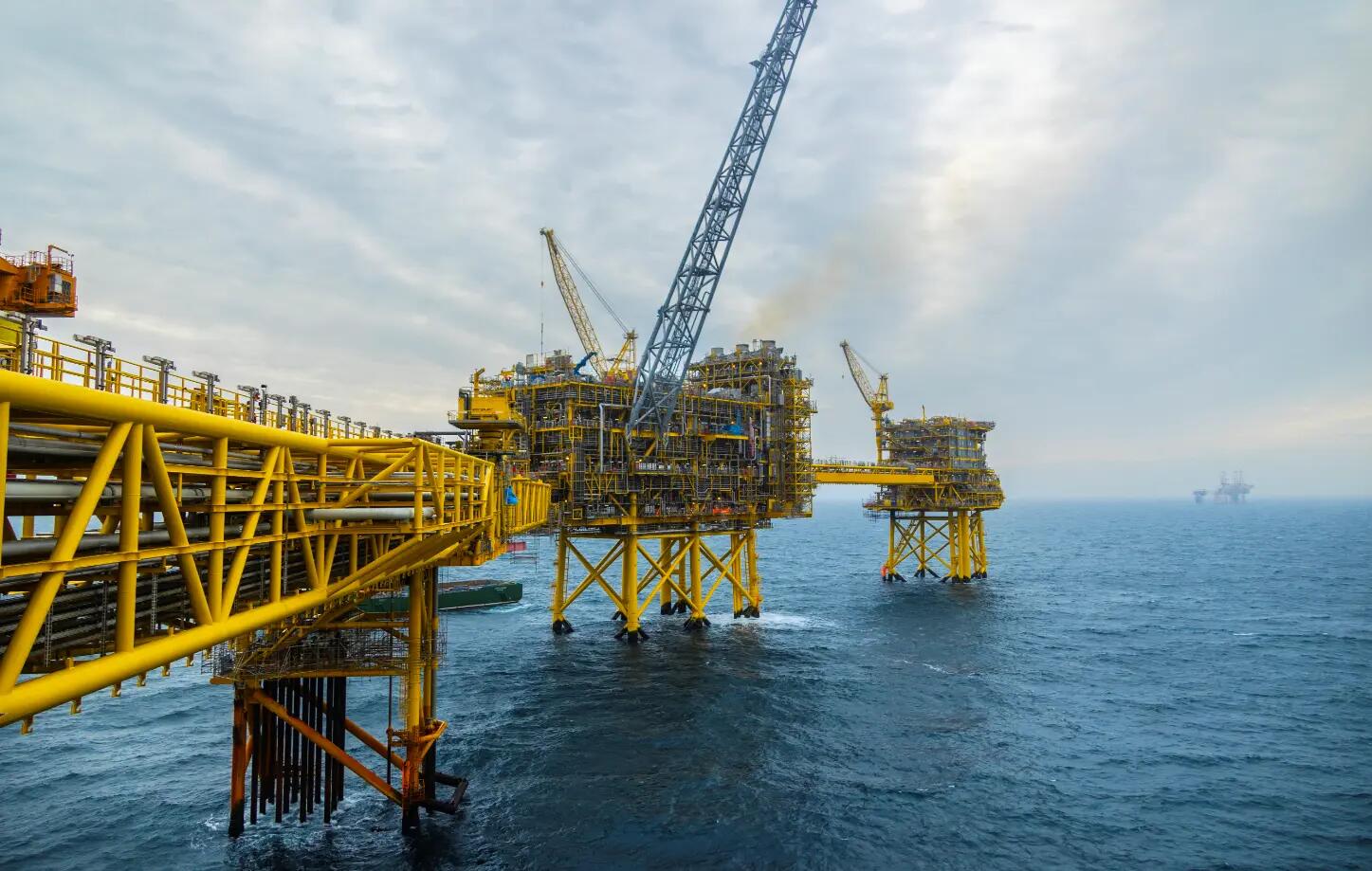.webp)
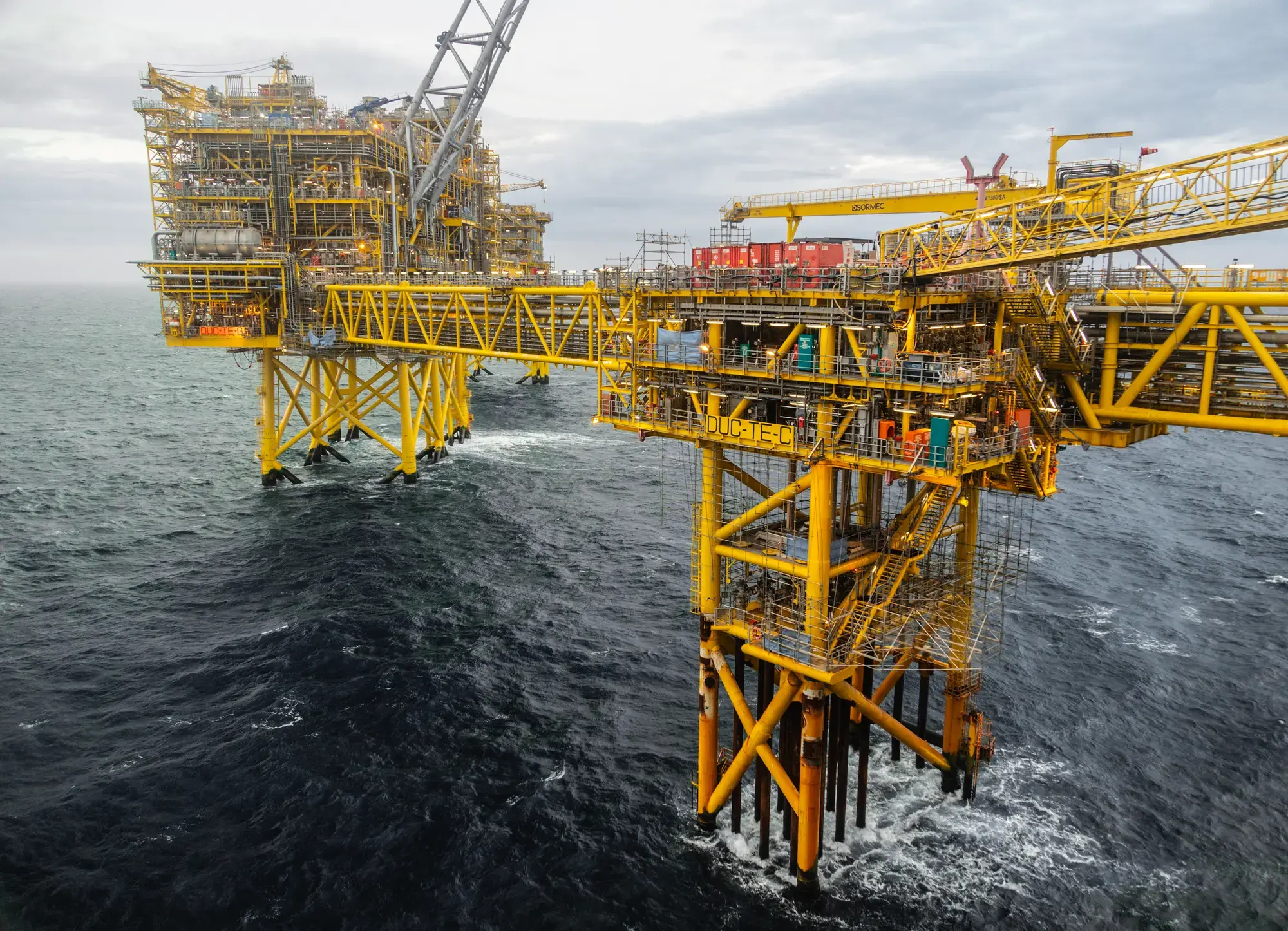
Balancing oil and gas extraction with climate goals
TotalEnergies is a multi-energy company and committed to the co-existence of multiple energy forms on the way to the full green transition. While the ultimate aim is a fully renewable energy system, oil and gas are still essential for a stable, secure, and economically viable transition.
Recognizing the ongoing need for natural gas as a bridge fuel, TotalEnergies ensures a stable energy supply while renewable infrastructure is being developed. This approach also aids in phasing out coal, which is still used in many European countries.
The International Energy Agency (IEA) in its 2023 report on Denmark recommends maintaining dual energy policy tracks: Continuing oil and gas extraction from the Danish North Sea while pursuing ambitious climate goals, allowing the country to meet its energy needs and support European supply security without compromising its commitment to the green transition.
Economic impact of Danish North Sea oil
Since production start in 1972, the oil and gas from the Danish North Sea has been crucial to Denmark’s economy, energy supply, and labor market.
In the period 1972-2002, the industry contributed approximately 544 billion DKK to the state treasury, supporting public services and infrastructure. DUC’s production has made Denmark self-sufficient in oil and gas since 1993.
TotalEnergies is fully committed to meeting our obligations as the operator of the Sole-concession through to 2042 and thereby also the development of the Danish North Sea. We continue to significantly contribute to the country’s economic growth and have created thousands of jobs, both offshore and onshore, boosting local economies.
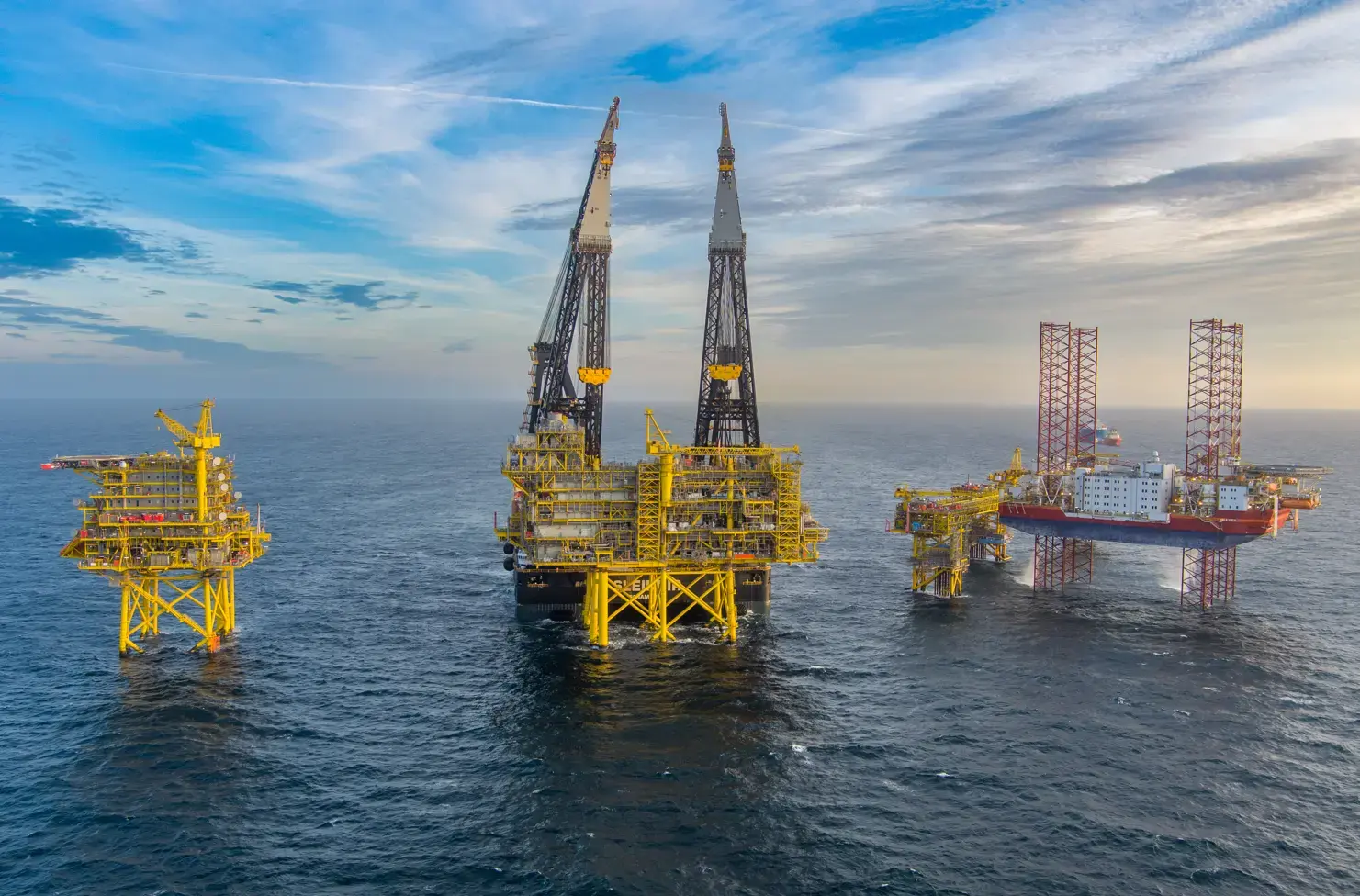
Protecting biodiversity around our oil and gas platforms
Life at sea is under pressure in many places but may be less so around our Danish North Sea platforms.
The North Sea is the home of our Danish operations, and it is therefore crucial that we understand the marine life around our platforms. We are proud of our academic collaborations with skilled researchers and experts that support us in gaining valuable knowledge about the marine environment and biodiversity trends around platforms. The data guides our decision-making related to activities at sea, and our hope is that the wider society, including industry, authorities, and policymakers can also benefit from it.
TotalEnergies, along with DUC partners BlueNord and Nordsøfonden, and DHI has launched an open data portal – the North Sea Environment Portal – which will provide access to more than 40 years of data on environmental and biodiversity trends.


Decades of data will now be made public to strengthen future North Sea marine environment plans
Reducing our carbon footprint
At TotalEnergies, we have a clear ambition to continue reducing our CO₂ footprint, and we are on track to exceed approximately 40% GHG emissions in 2030 compared to 2015. We work consistently to identify and deliver CO₂ reductions through a range of initiatives such as energy efficiency, optimized processes, digitalization, and new technologies.
Examples include:
- The re-routing of Halfdan oil production to Dan Fox. Implemented in July 2023, it enabled us to fully eliminate routine flaring
- The use of innovative AUSEA-drones helps us to reduce our CO₂ and methane emissions
- The redeveloped Tyra is expected to produce at around 30% lower emissions compared to the old facilities because of its new design, high-tech equipment, new ways of working, overall improved energy efficiency, and lower production volumes.
The heartbeat of our offshore operations
At the heart of our oil and gas operations are the dedicated people who make it all possible. During 2023, we had around 1,700 employees working offshore at any time. Our workforce is a testament to our commitment to diversity and international collaboration, with employees hailing from 62 countries, predominantly Denmark, the UK, and Poland. This high level of internationalization enriches our operations and fosters a dynamic work environment.
Our team comprises 97% men and 3% women, reflecting the current industry demographics. We also work closely with contractors, who make up 92% of our offshore personnel, underscoring the collaborative effort required to supply oil and gas to Europe. Together, we ensure the reliable and efficient delivery of energy.
Keeping our people and operations safe
At TotalEnergies, safety is not just a priority; it is a core value that underpins everything we do. Our commitment is simple yet profound: we want everyone to go home safely every single day.
This dedication to safety is integral to all our operations and is reflected in our overarching safety goals. Our safety goals include achieving zero fatalities, continuously decreasing the Total Recordable Incident Rate (TRIR), preventing major industrial accidents, and maintaining and promoting the health of our people.
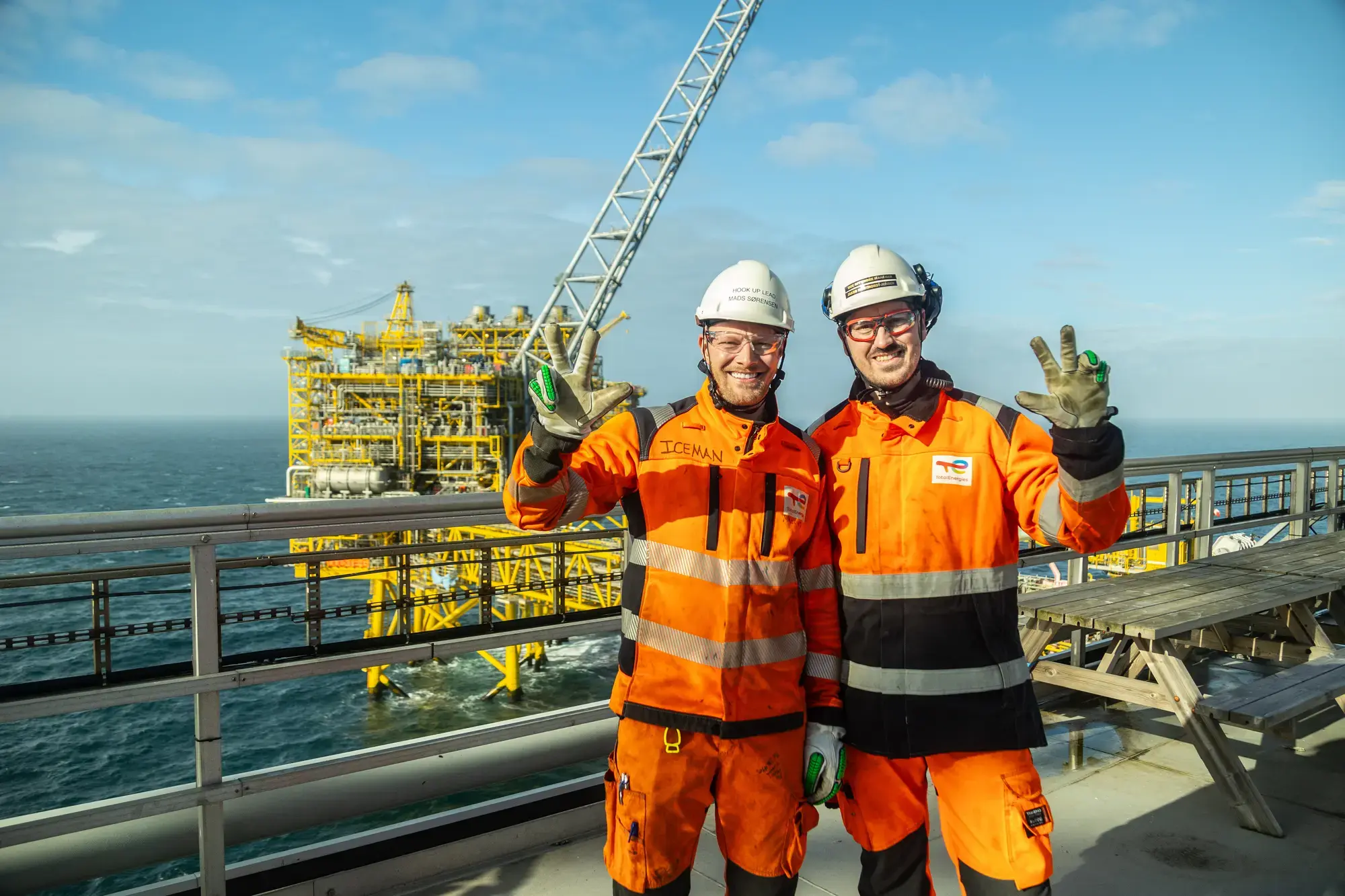
Discover the Tyra Redevelopment project
Dive into the world of the Tyra Redevelopment project through a curated series of videos designed to give you a holistic understanding of the project.
